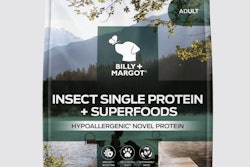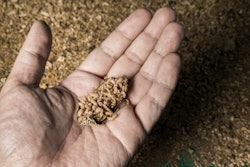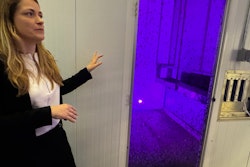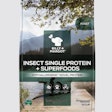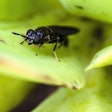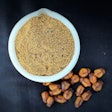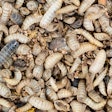
On June 12, the White House introduced a plan to meet its goal of reducing food loss and waste in the U.S. by 50% by 2030. The National Strategy for Reducing Food Loss and Waste and Recycling Organics, a collaborative effort between USDA, FDA and EPA, included multiple mentions of insects as part of the solution to this problem, noted Aaron Hobbs, executive director of the North American Coalition for Insect Agriculture (NACIA).
“Just this week, the Biden Administration published its plan," said Hobbs. “Insects can -- and are -- playing a growing role in the prevention of food waste and food loss in multiple ways.”
During an Ask the Pet Food Pro Zoom chat on June 4, Hobbs said the North American insect industry recently received US$30 million in grant support from the U.S. federal government. He noted NACIA has had productive conversations with government agencies around future insect protein initiatives.
“We have dialogue open with the food loss and waste teams within both USDA and EPA discussing expanded funding for research and outreach to further highlight our role to address this issue and expand our opportunity to make an impact,” said Hobbs.
Insects have substantial positive impact on climate
Hobbs highlighted that insect protein is a rapidly expanding pet food ingredient, with over $2 billion invested globally.
“In terms of sustainability, the key point is that this isn't just greenwashing,” said Hobbs. “Insect protein in pet food truly has a significant positive impact.”
Despite the variability in life cycle analysis (LCA) results due to factors such as feedstocks, energy usage and the type of energy used, all insect protein companies that have conducted LCAs have demonstrated that insect products can offer a lower ecological impact compared to traditional proteins, said Hobbs.
“This consistency across various studies highlights the significant potential of insect protein to contribute to a more sustainable and environmentally friendly pet food industry,” he said.
Insect protein offers other functional benefits for pets in addition to a lower ecological impact compared to traditional proteins. For instance, Black Soldier fly larvae (BSFL) can enhance pets' health and well-being by improving their gut microbiome, skin and dental health, according to Hobbs.
“Including BSFL in dog and cat food can be a win for the environment and a win for a healthy pet,” he concluded.



